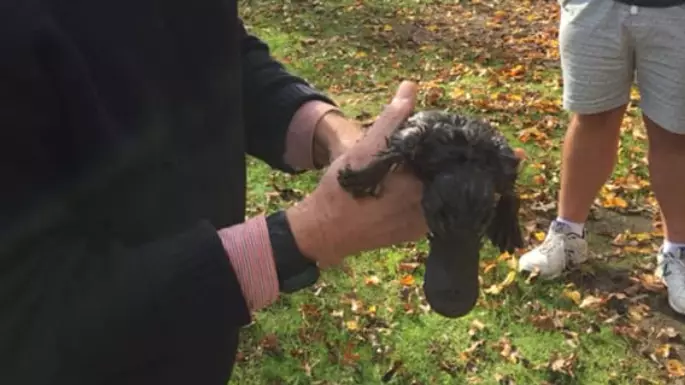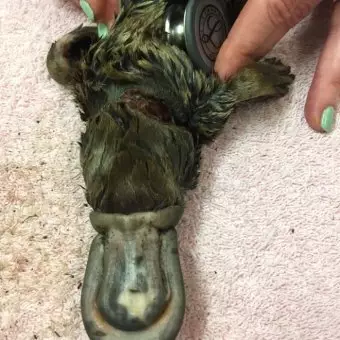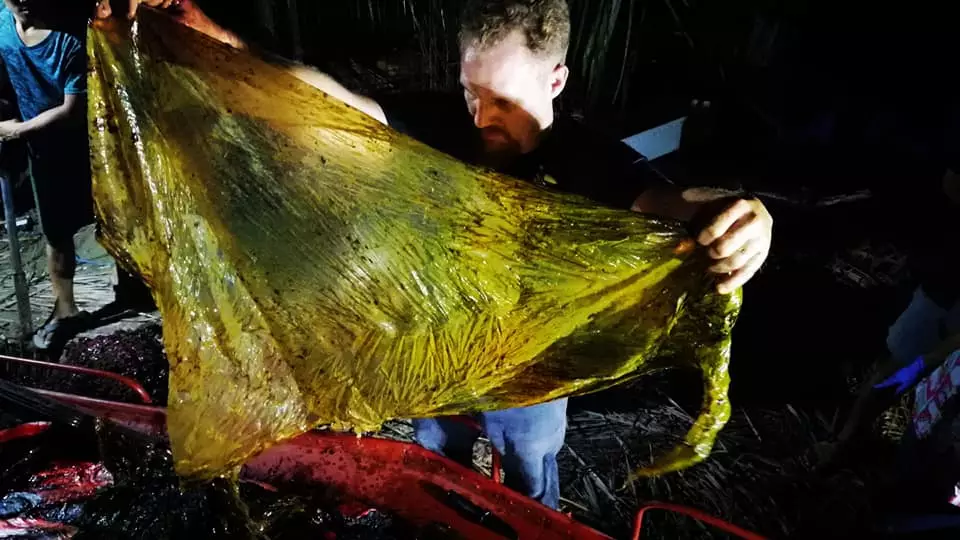
The platypus is a pretty rogue species in Australia: they don't have a stomach, males have a venomous spur on their foot that they can jab animals with, their bills give them a sixth sense and they have retractable webbing.
They're endemic to Australia and we love them dearly.
So you can imagine our shame and shock after hearing one had to be euthanized after coming into contact with a bunch of hair ties.
The little circles of death became wrapped around the platypus' neck and leg at the Staghorn Wildlife Shelter in Victoria, causing irreparable damage to the small creature.

The shelter has written on Facebook: "It soon became clear that this beautiful little female platypus would have to be euthanased. She had discarded hairbands constricting her neck and front leg.
"The wounds were down to the bone and recovery from them impossible. Thank you to Dr Bek for opening up her clinic on a Saturday afternoon to provide prompt and humane euthanasia.
"This tragic outcome highlights the dangers faced by platypus in our waterways.
"The main threats to platypus are habitat change, pollution, change to river flow, illegal fishing nets, stock trampling river banks and litter entanglements.


"Despite all these obstacles platypus can thrive in waterways close to humans so it is essential we learn to STOP LITTERING OUR WATERWAYS. This is the third platypus retrieved from the Ovens River in Bright with life threatening injuries from litter/hair bands."
Advert
The shelter is calling for signs to be erected around the area encouraging people to stop dumping their rubbish.
Our impact on the natural world is becoming more apparent with every passing day, with animals being found with plastic waste in their stomachs.
A dead whale that washed ashore in the Philippines was found to have 40kg (88lbs) of plastic in its stomach.

The Cuvier's beaked whale was found dead in the Compostela Valley earlier in March.
Advert
An autopsy was carried out by staff from Bureau of Fisheries and Aquatic Resources Fishery Management Regulatory Division, led by marine biologist Darrell Blatchley, who owns D'Bone Collector Museum, and Dr Elaine Belvis.
Blatchley told CNN its cause of death was dehydration and starvation due to swallowing so much plastic. He said it 'had the most plastic we have ever seen in a whale'.
We need to stop allowing our rubbish to end up here.
Featured Image Credit: Staghorn Wildlife Shelter/Facebook